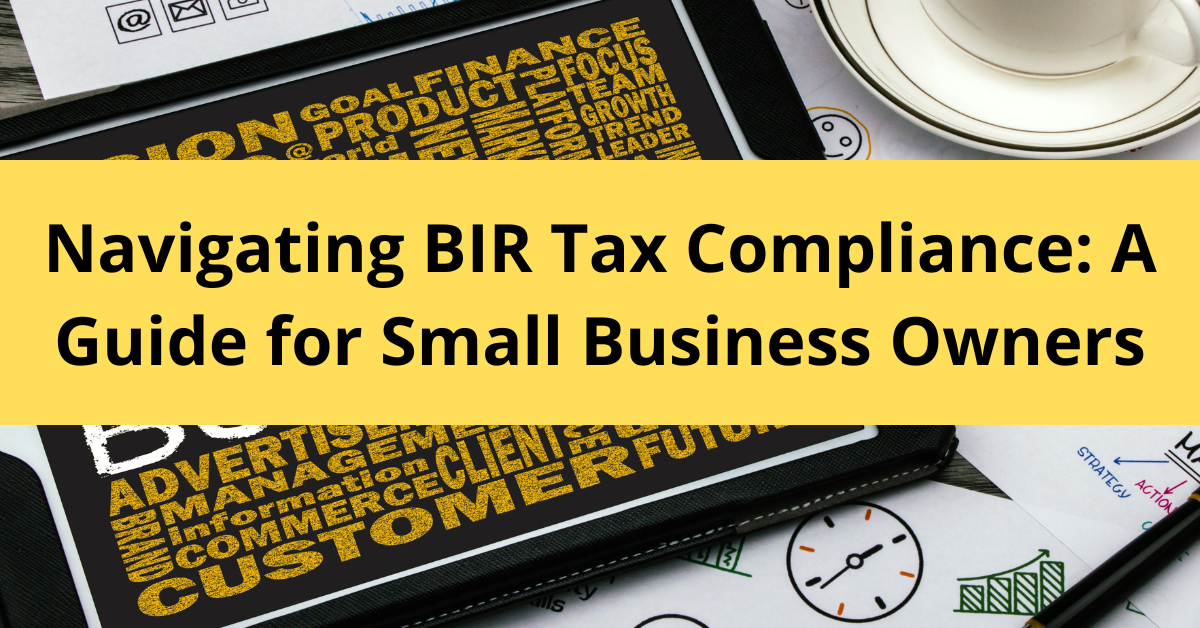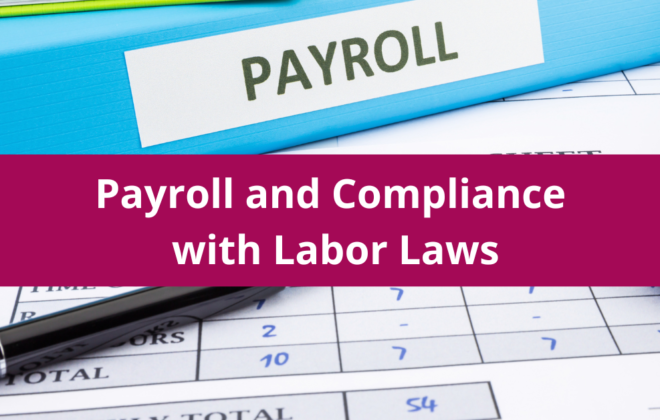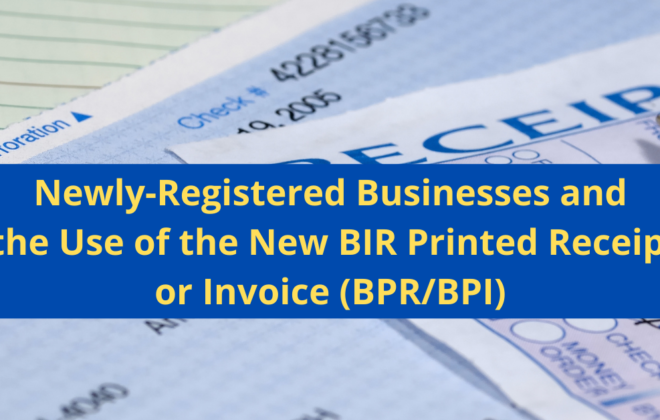Navigating BIR Tax Compliance: A Guide for Small Business Owners
As a small business owner, you may have a lot on your plate. From managing employees to keeping up with customer demands, there are a lot of things that need your attention.
But one of the most important things that you need to keep in mind is tax compliance. This includes making sure that you are paying the right amount of taxes to the Bureau of Internal Revenue (BIR) and that you are doing it on time.
If you don’t, you could face penalties and fines that could put your business in jeopardy.
Here is a guide to help you navigate BIR tax compliance:
1. Register your business with the BIR.
Before you can start paying taxes, you need to register your business with the BIR. This includes filling out the necessary forms and providing the required documents.
Some of the things that you will need to provide include your business name, address, TIN (Tax Identification Number), and contact information.
Once you have registered your business, you will be given a certificate of registration that you will need to keep on file.
2. Determine your tax obligations.
Once your business is registered, you need to determine what your tax obligations are. This will depend on the type of business you are running and the income that you are generating.
Some of the taxes that you may need to pay include income tax, value-added tax (VAT), and percentage tax.
3. Keep accurate records.
One of the most important things you can do to stay compliant with the BIR is to keep accurate records of all your financial transactions. This includes keeping track of all your income and expenses, as well as any taxes that you have paid.
Having accurate records will make it easier for you to file your taxes and will also help you stay organized.
4. File your taxes on time.
One of the most common mistakes that small business owners make is not filing their taxes on time. The BIR has strict deadlines for filing taxes, and if you miss them, you could face penalties and fines. Make sure you know when your taxes are due and file them on time.
5. Understand the difference between VAT and non-VAT registered businesses.
VAT registered businesses are required to charge VAT on their goods and services and are also required to file for VAT returns every quarter.
On the other hand, non-VAT registered businesses are not required to charge VAT but are still required to file for income tax returns every year.
It’s important for small business owners to understand the difference between these two types of registration as it will affect the way they file their taxes and the amount of taxes they will pay.
6. Keep an eye out for updates and changes in tax laws.
Tax laws and regulations are subject to change, and it’s crucial for small business owners to keep themselves updated on these changes. The BIR regularly issues new rulings and regulations, and it’s important to be aware of these updates to avoid any penalties or fines.
7. Take advantage of available tax incentives.
The government offers a variety of tax incentives to small businesses to encourage growth and development. These incentives include tax holidays, deductions, and exemptions. Taking advantage of these incentives can help reduce the amount of taxes you need to pay and can also help your business save on costs.
8. Seek professional help if needed.
Navigating BIR tax compliance can be a daunting task, especially for small business owners who are already stretched for time. If you find that you are having trouble keeping up with your tax obligations, don’t hesitate to seek professional help.
A tax consultant or accountant can help you understand your tax obligations and make sure that you are staying compliant. Just send us a message at info@djkaaccounting.com to learn how we can help you with your tax obligations.
Keep in mind that BIR tax compliance is an important aspect of running a small business. With the right knowledge and tools, it’s possible to stay compliant and avoid costly penalties and fines.
Recent Posts
- How to Process the Sworn Declaration Required by BIR for Electronic Marketplace Sellers
- Understanding Tax Compliance for e-Marketplace Businesses
- Who Needs to Submit GIS to the SEC?
- Understanding these Financial Ratios for Business Decision-Making Purposes
- What you Should Know about the Ease of Paying Taxes Act





